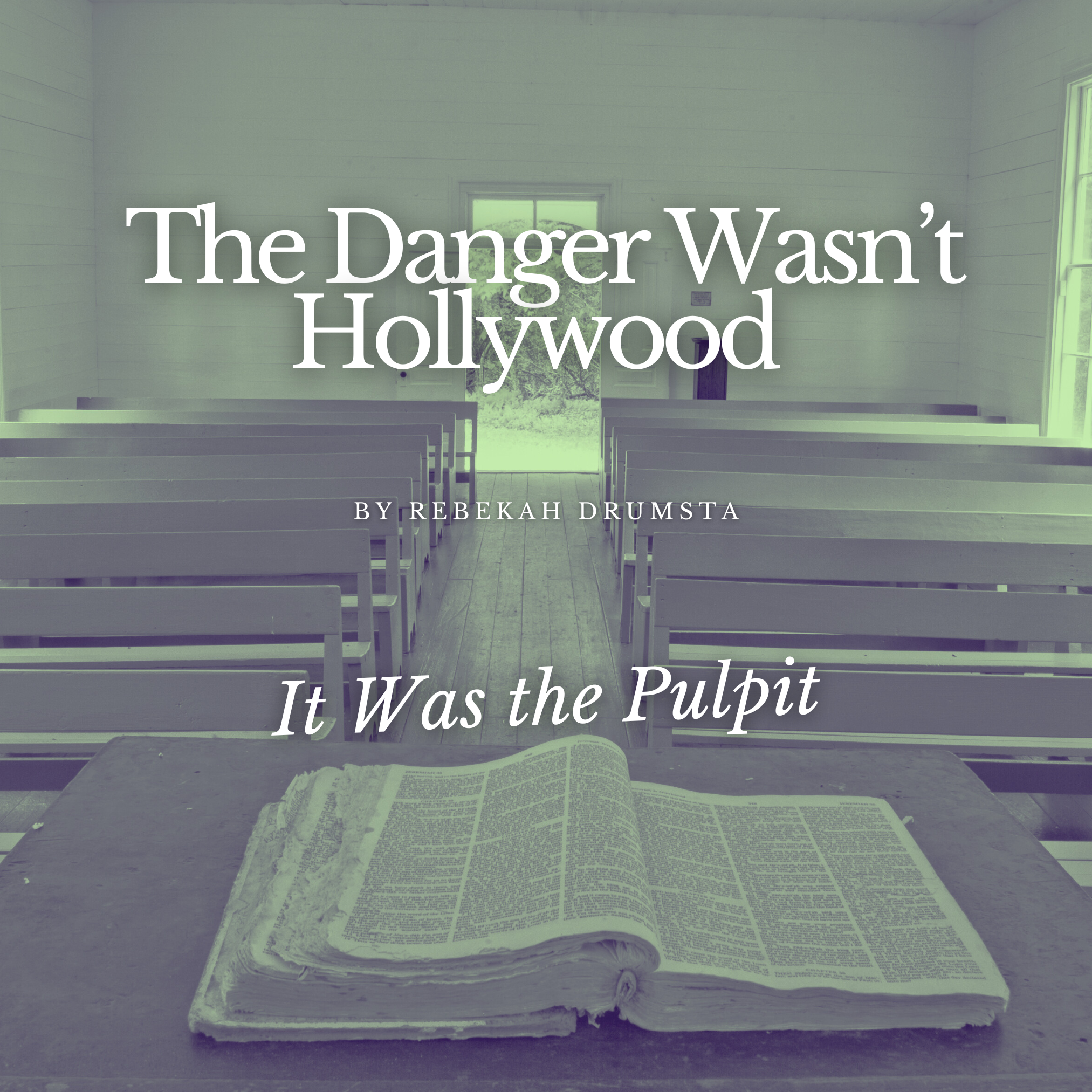
The Danger Wasn’t Hollywood - It Was the Pulpit
Sometimes it’s hard to explain what life inside evangelical fundamentalism was like to people who never lived it. The rules, the separatism, the superiority, the fear of the “world” — all of it felt normal when you were inside. And after more than a decade without connection to that space, I’ve noticed some of the details fading. And it’s been early twenty years of questioning, deconstructing, and embracing who I am today.
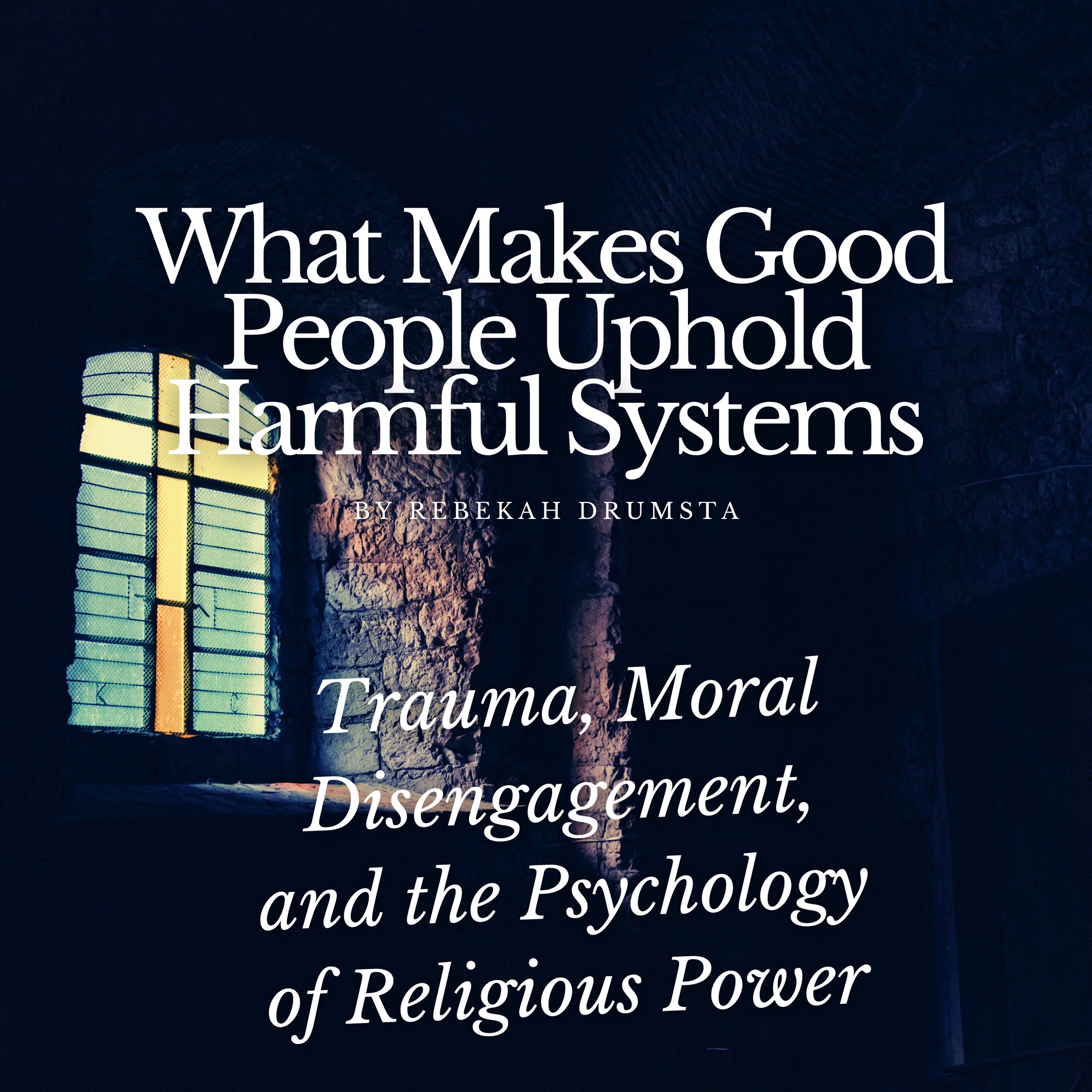
What Makes Good People Uphold Harmful Systems: Trauma, Moral Disengagement, and the Psychology of Religious Power
People rarely step into a faith community expecting harm. Most of us were handed language about love, protection and “God’s best for your life.” And yet, many of us grew up inside systems where fear, shame and unquestioned authority shaped our bodies and our sense of self long before we had the words for any of it. To understand how that happens, we need more than doctrine or personal stories. We need a framework that explains how harm becomes normalized and even sanctified.
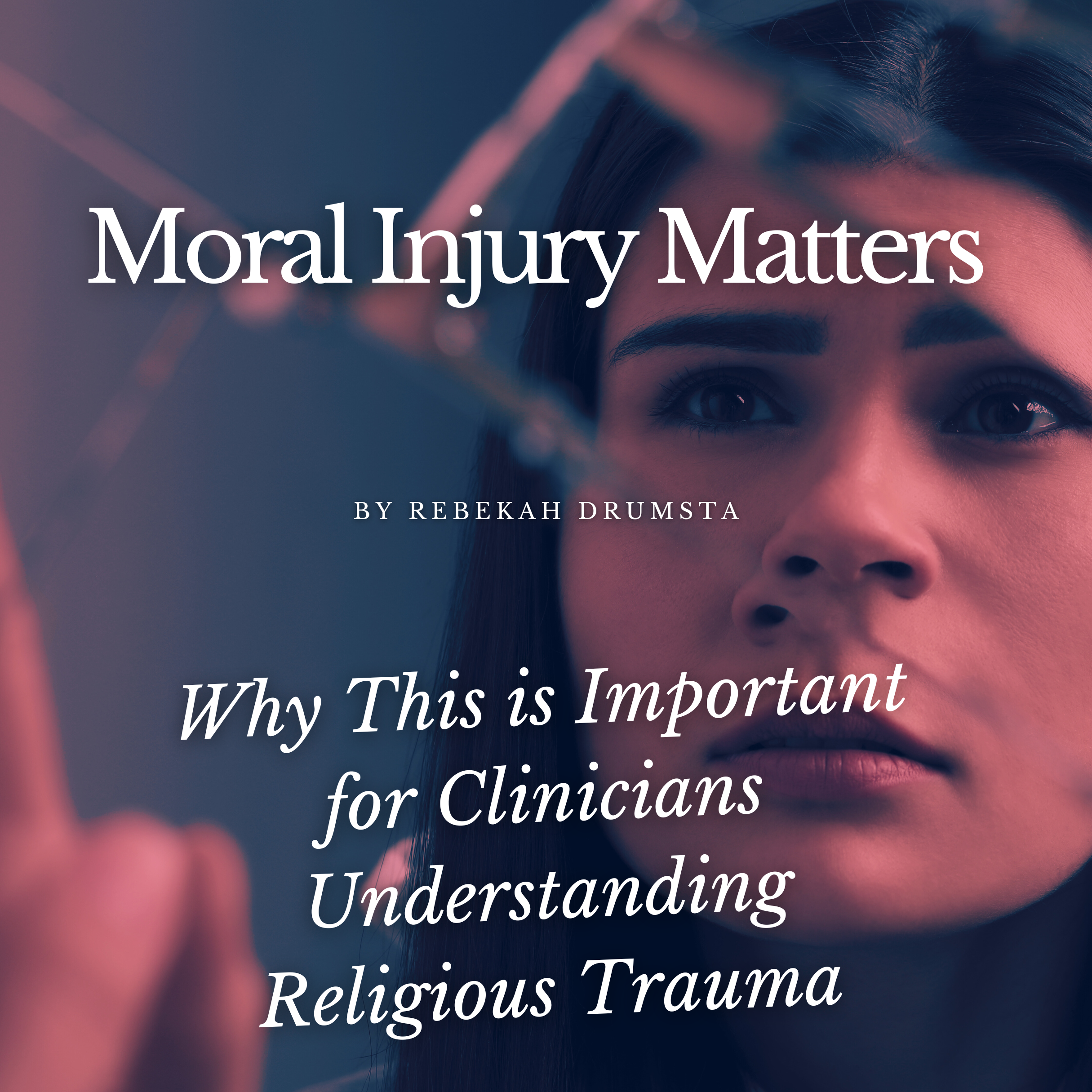
Moral Injury Matters: Why This is Important for Clinicians Understanding Religious Trauma
Moral injury has finally entered the clinical vocabulary in a meaningful way. As of September of 2025, the DSM now recognizes moral injury under the category of “Moral, Religious, or Spiritual Problem.” We’re watching the field take a step toward acknowledging the kinds of wounds that don’t show up on scans but shape a person’s entire sense of self. It’s overdue, and it seriously matters. (DSM stands for Diagnostic and Statistical Manual of Mental Disorders. It is the primary manual clinicians use to classify and describe mental health conditions. DSM-5-TR Update is the edition I’m referring to.)
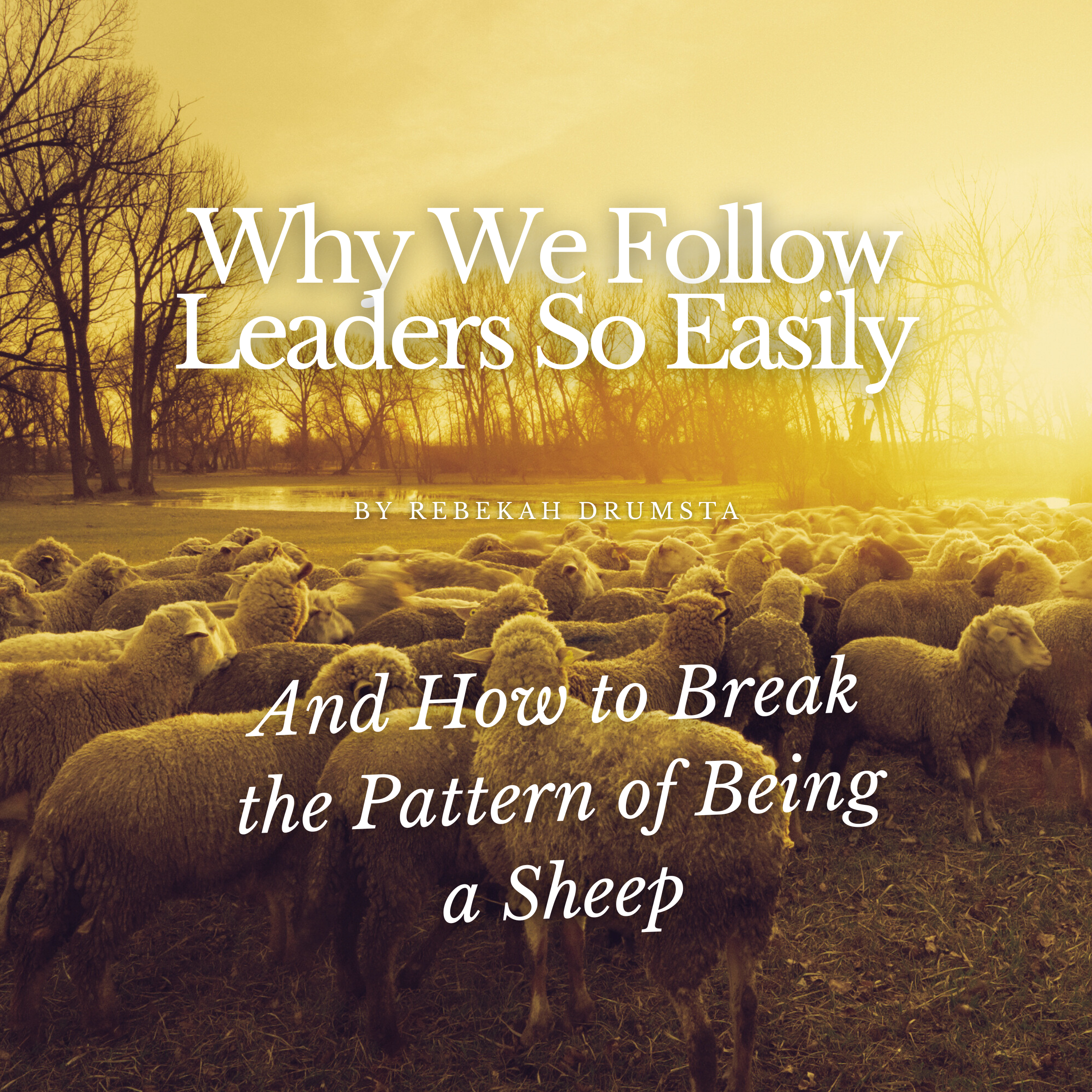
Why We Follow Leaders So Easily And How to Break the Pattern of Being a Sheep
Many of us who grew up in Christian fundamentalism or high‑control religious environments are doing the hard work of questioning, researching, and analyzing what we were taught. We’re trying to understand what we believe now, what we want to keep, and what we need to release. And in that process, something predictable happens: we look for someone else to tell us what’s true.
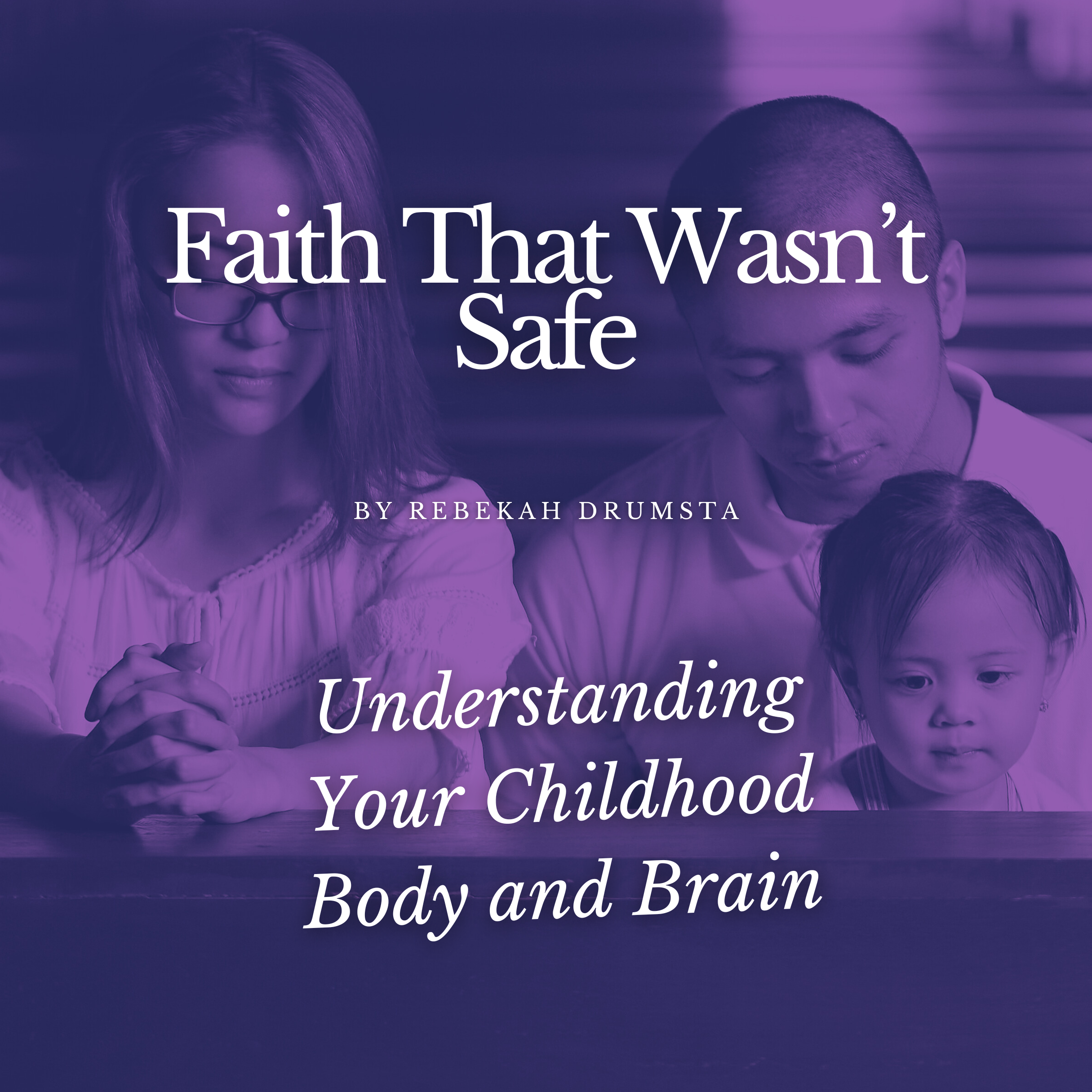
Faith That Wasn’t Safe: Understanding Your Childhood Body and Brain
High-control, fear-based religious environments leave real marks on a child’s development. Survivors often carry those marks into adulthood as anxiety, shame, confusion, and a deep mistrust of themselves—not because they are broken, but because their systems were shaped in ways no child should have to endure. What felt “normal” back then may finally make sense when you see how fear, shame, and control interacted with your developing brain, body, and sense of self.
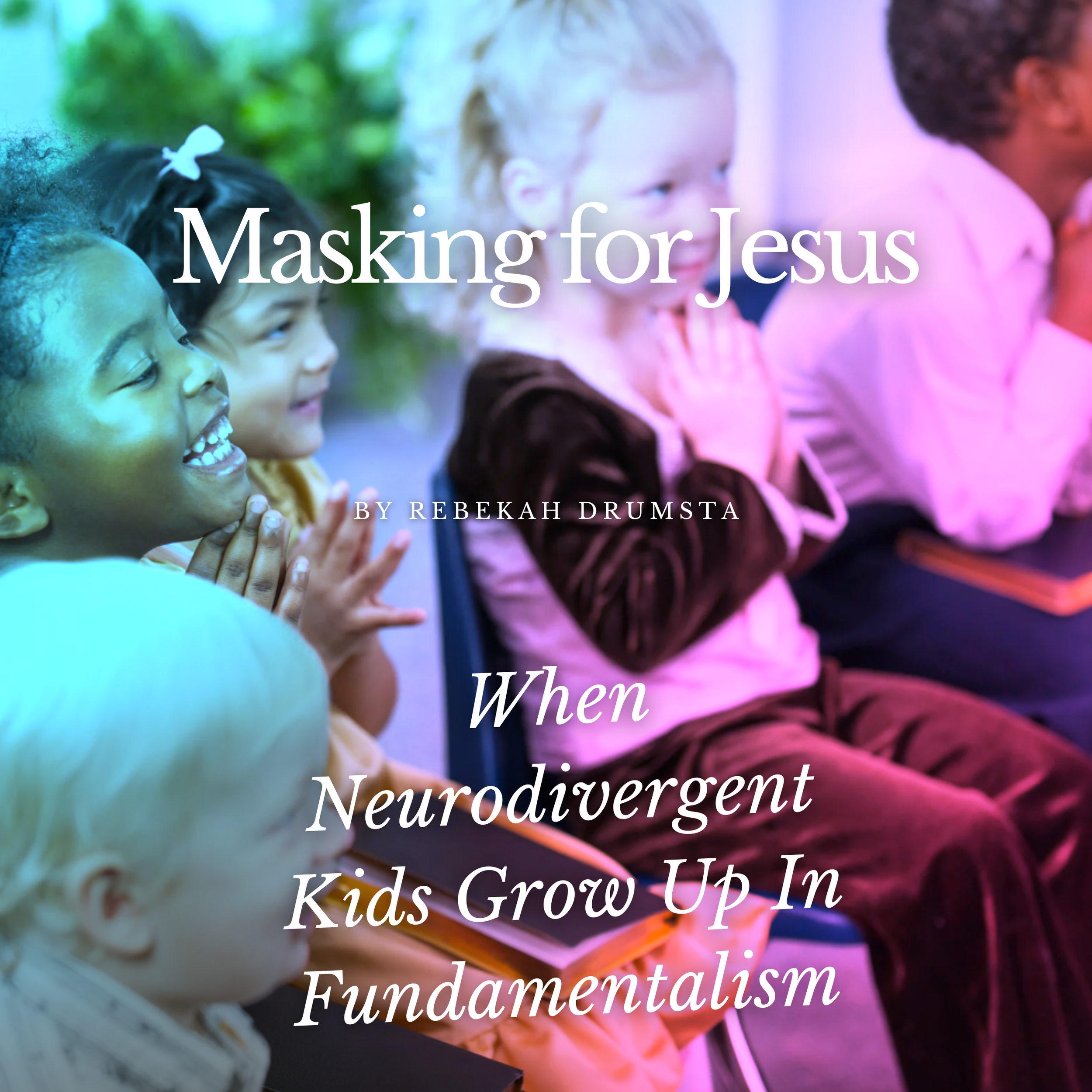
Masking for Jesus: When Neurodivergent Kids Grow Up In Fundamentalism
Neurodivergent kids with ADHD, autism, OCD, anxiety, or other neurodivergent wiring—raised in fundamentalist, high-demand Christian worlds often felt like square pegs hammered into round, heaven-or-hell holes. Your brain was doing what brains do, but the environment demanded a very specific shape: quiet, compliant, perfectly pious, always performing. When you didn’t fit, it wasn’t seen as a wiring difference. It was a spiritual defect or conversely, your masking was glorified. And that mismatch left marks that make total sense when you look back.
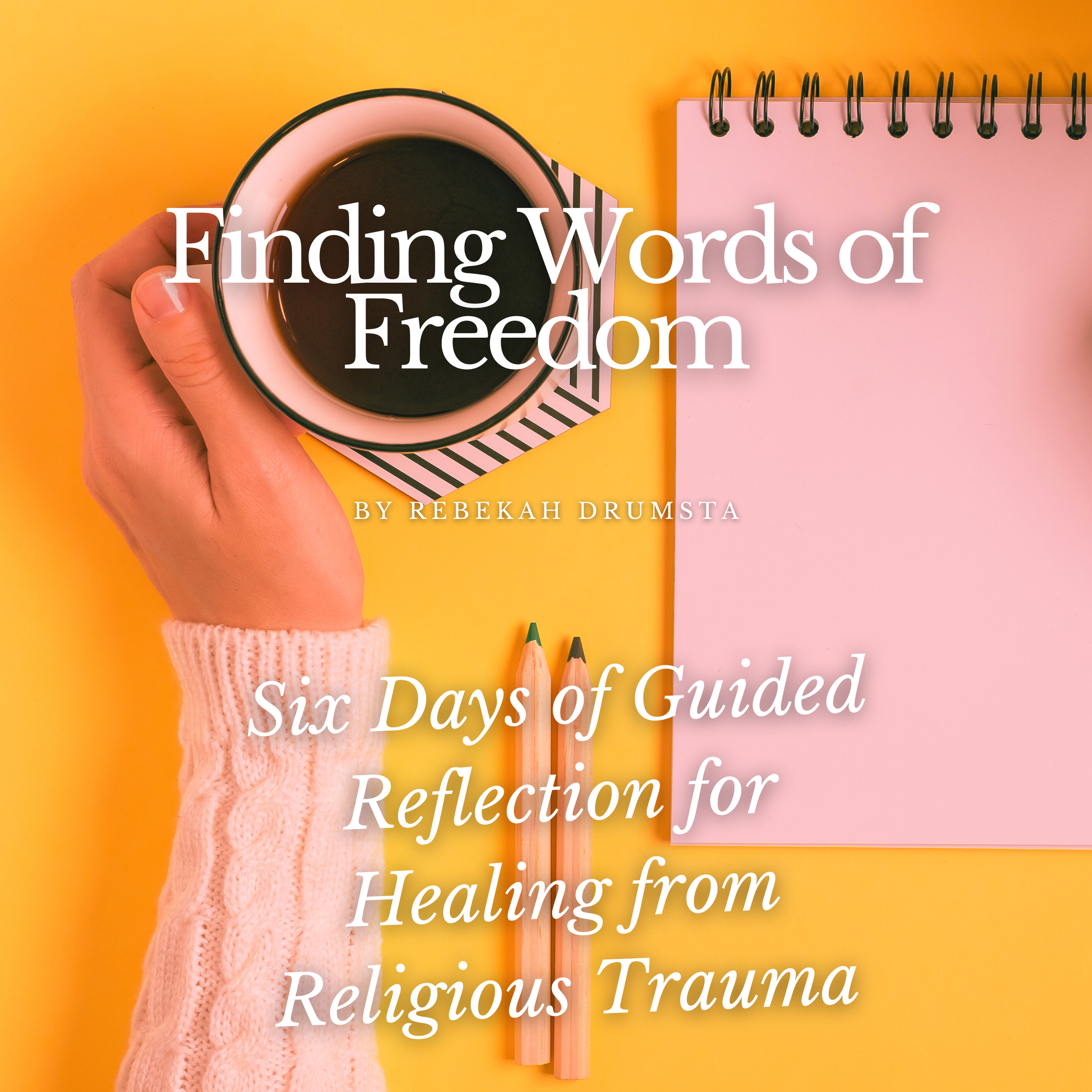
Finding Words of Freedom: Six Days of Guided Reflection for Healing from Religious Trauma
There comes a point in many of our stories when the faith we were handed stops feeling like home. Maybe it happened slowly—small comments, subtle control, the quiet erosion of your sense of self. Or maybe it was one moment that split your world open.
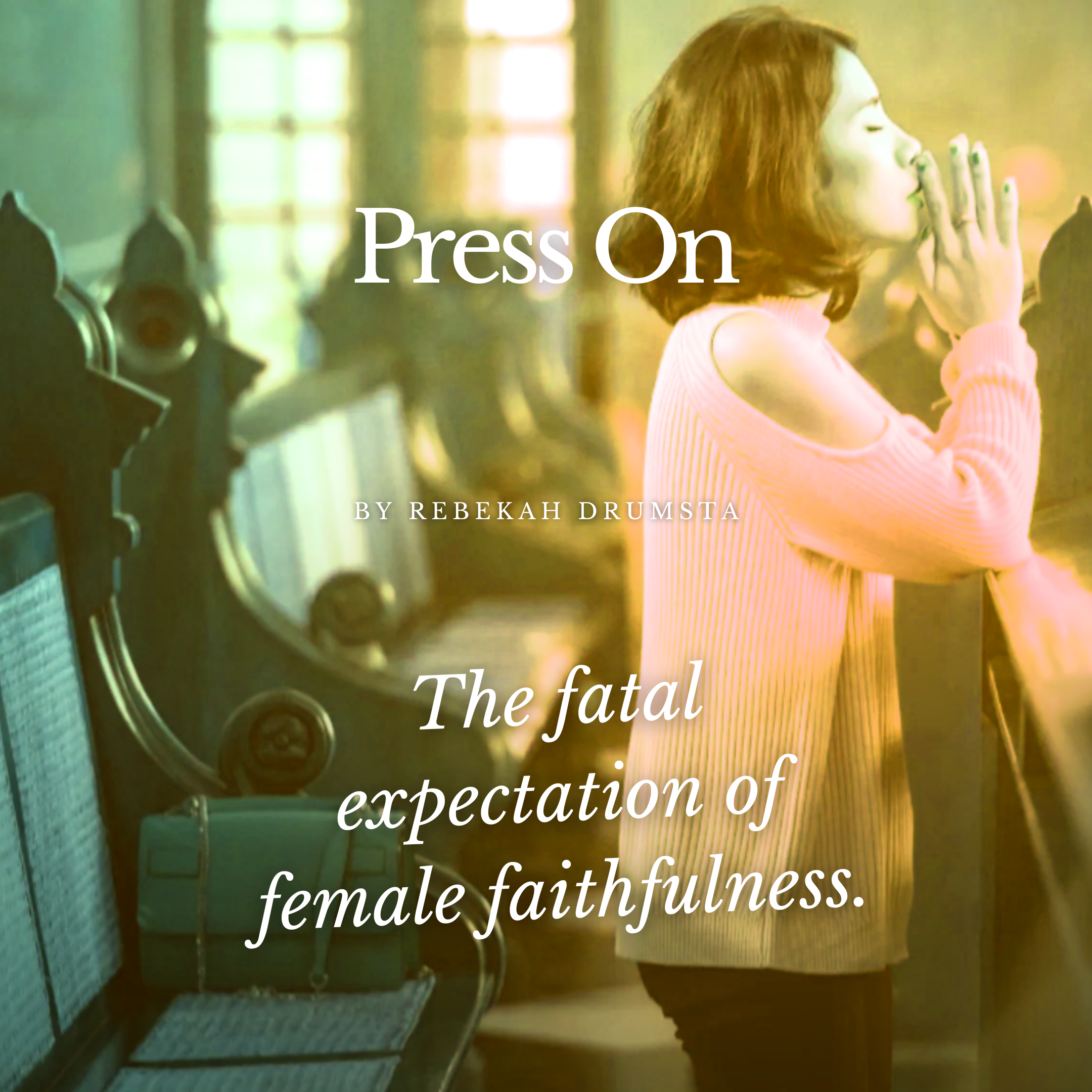
Press On: The fatal expectation of female faithfulness.
There’s a phrase I heard all my life in the faith spaces I grew up in: press on. Songs lyricized the concept. “Press on! “ was spoken as an admonition. It was offered as encouragement, but it functioned as expectation. A command. A cultural script. A spiritualized demand that women keep going no matter what their bodies, minds, or spirits were trying to tell them.
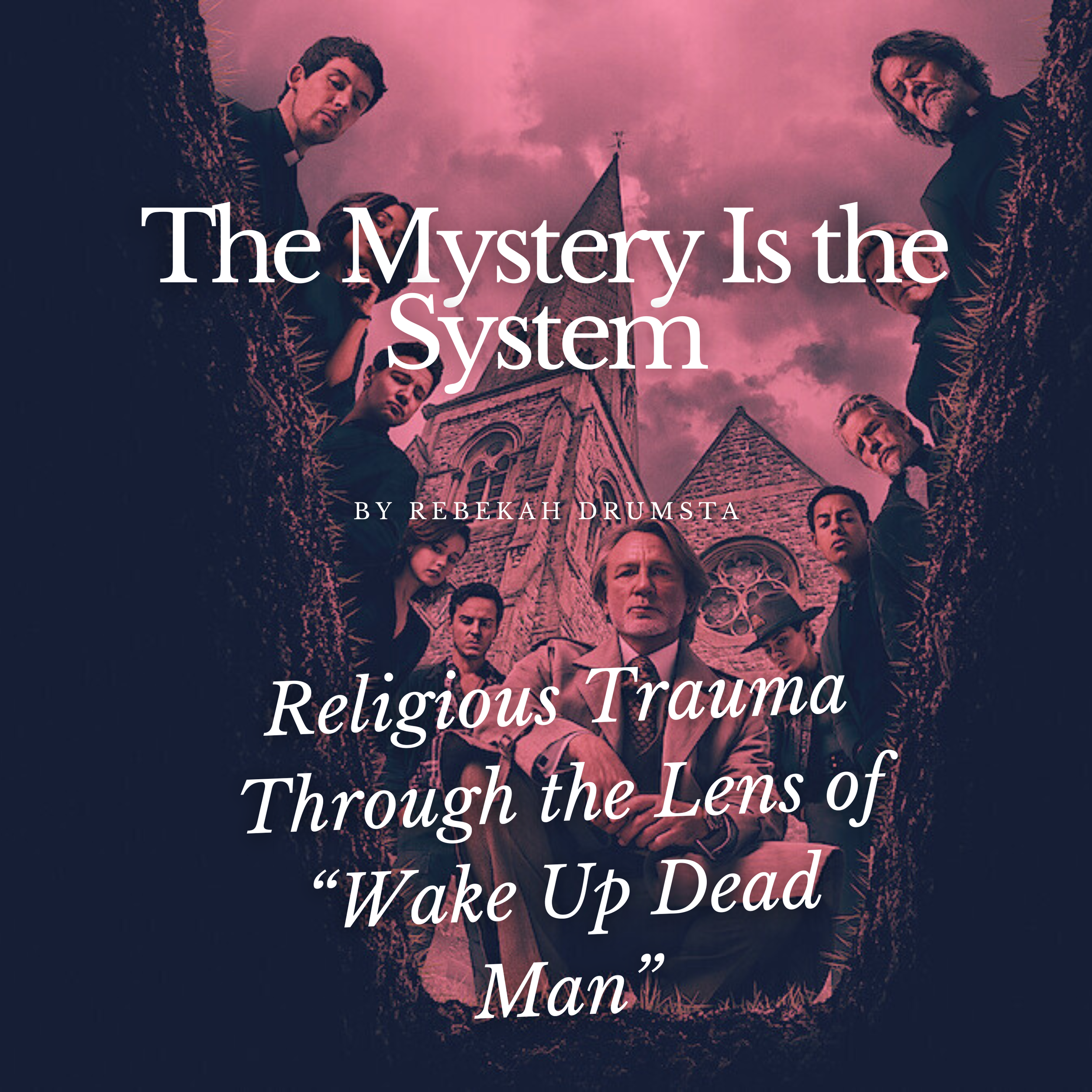
The Mystery Is the System: Religious Trauma Through the Lens of “Wake Up Dead Man”
There’s a particular ache that comes when the place meant to keep you safe becomes the place that wounds you. Religious trauma is not only about doctrine gone wrong; it’s about the slow erosion of trust, the shrinking of autonomy, and the way authority can be wielded to silence and shame. The new Benoit Blanc mystery Wake Up Dead Man over on Netflix stages a gothic whodunnit inside a church community, and the film’s plot—centered on a controversial priest, a morally compromised monsignor, and a parish fractured by secrets—gives us a cinematic mirror for those dynamics.

Millstones and Mic Drops: What does comedy reveal about our culture?
The other day I scrolled through a comedian’s reel and what he said made me stop and rewatch just to make sure. He was riffing on his sisters’ parenting—gentle parenting, emotional coaching, the kind of responsive care that looks different from family tradition. He opened with, “All my siblings’ kids are bad. No one hits them anymore. No one spanks the kids.” The sketch ended with, “Dude, I will hit a child, bro. I will hit a child.” The audience laughed and applauded.

The Trad Wife Lie: When Submission Is Branded as Empowerment
We’ve all seen the posts. A gaggle of beautiful children, a perfectly curated home with fresh sourdough rising on the counter, goats or chickens grazing in the yard, and a fresh-faced mom in prairie-core fashion. Her teenager runs a business from the kitchen table. The husband makes a cameo—lifting something heavy or kissing her forehead. On the surface, it’s idyllic. It looks wholesome, classic, even aspirational. But beneath the aesthetic lies a movement rooted in patriarchy, subjugation, and control. I know because I was raised in it.

Is “Church Hurt” Just a Bypass? When What We Don’t Name Lets Harm Off the Hook
This post might make things sticky for me. You know, tread lightly or else I’m gonna make some folks upset. But that’s not my style. It used to be, back when I blogged under another name because I was too afraid to use my full name - Rebekah Drumsta. I was afraid back then of what people would think of me, what they would do to me, what would happen if I asked the questions in my mind or express a different opinion.

When the Cult Is the One Writing About Cults
This week I was researching a topic for another article I was developing and of all things, Bill Gothard’s own website pulled up. I have never chosen to view his site. I wasn’t in a place that hearing his voice again was safe for me. But this week, was different. Imagine my shock when I discovered a section entitled, “Why So Many Teens Join a Cult.” Of course…I read it.

The Life of a ShowChristian
I used to be really good at it. The smile…that plastered on “Ministry Smile.” The testimony. The “God is good” on cue. I knew how to play the part. Not because I was fake—but because I was formed by a system that taught me performance was protection and proper form.
This is the life of a ShowChristian. It’s not always narcissism. Sometimes it’s survival. Sometimes it’s what we were groomed to believe was holy.
